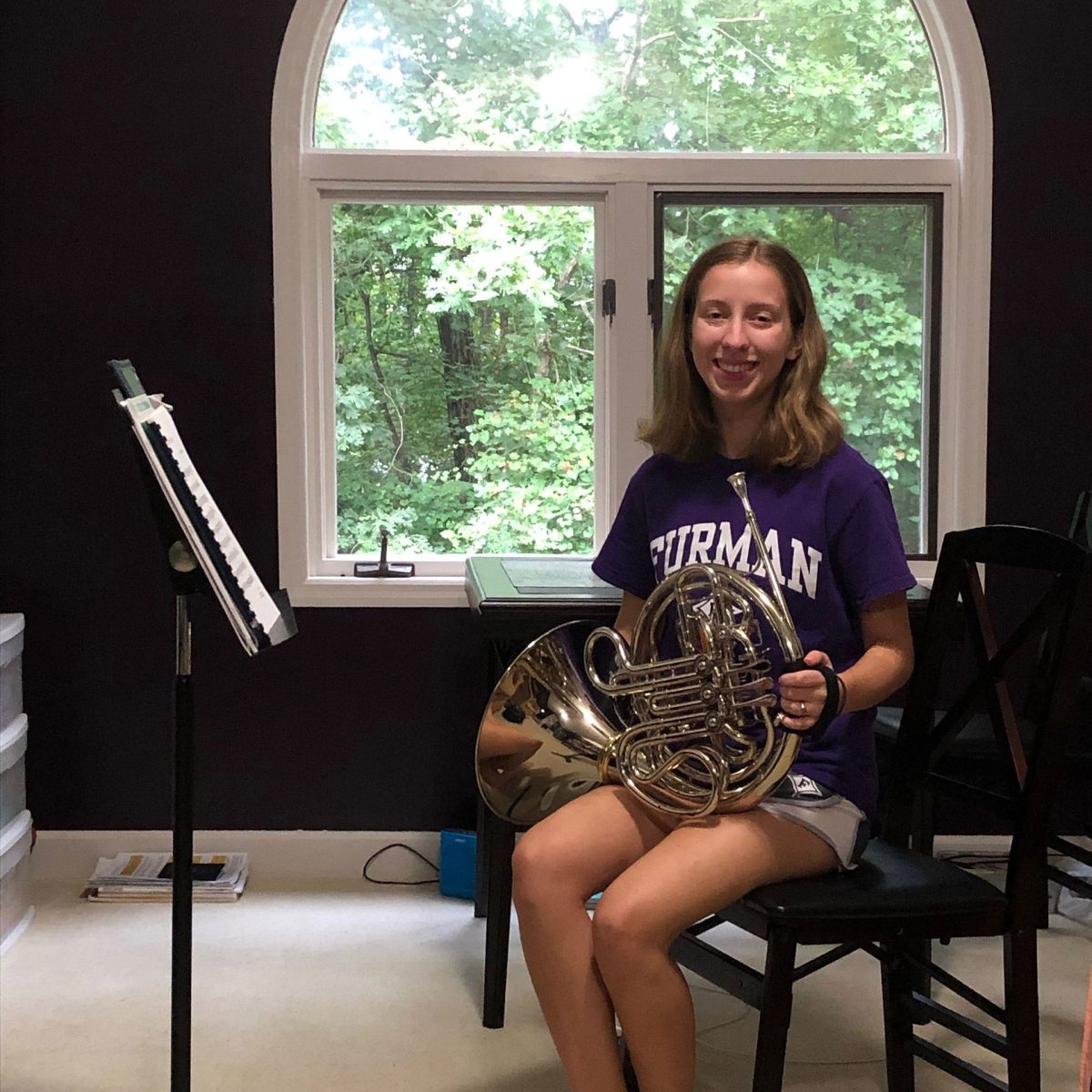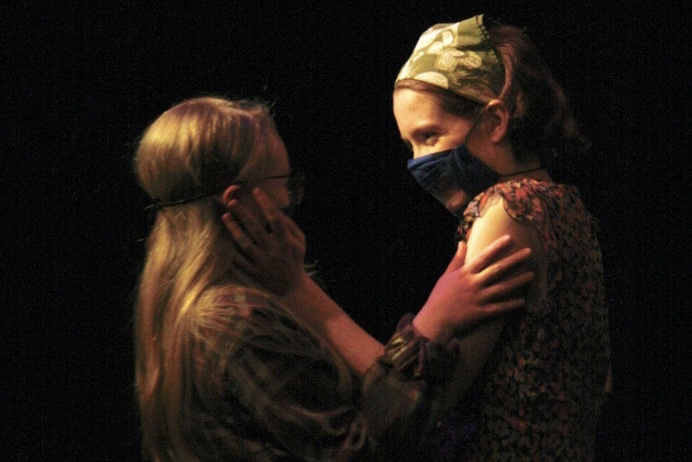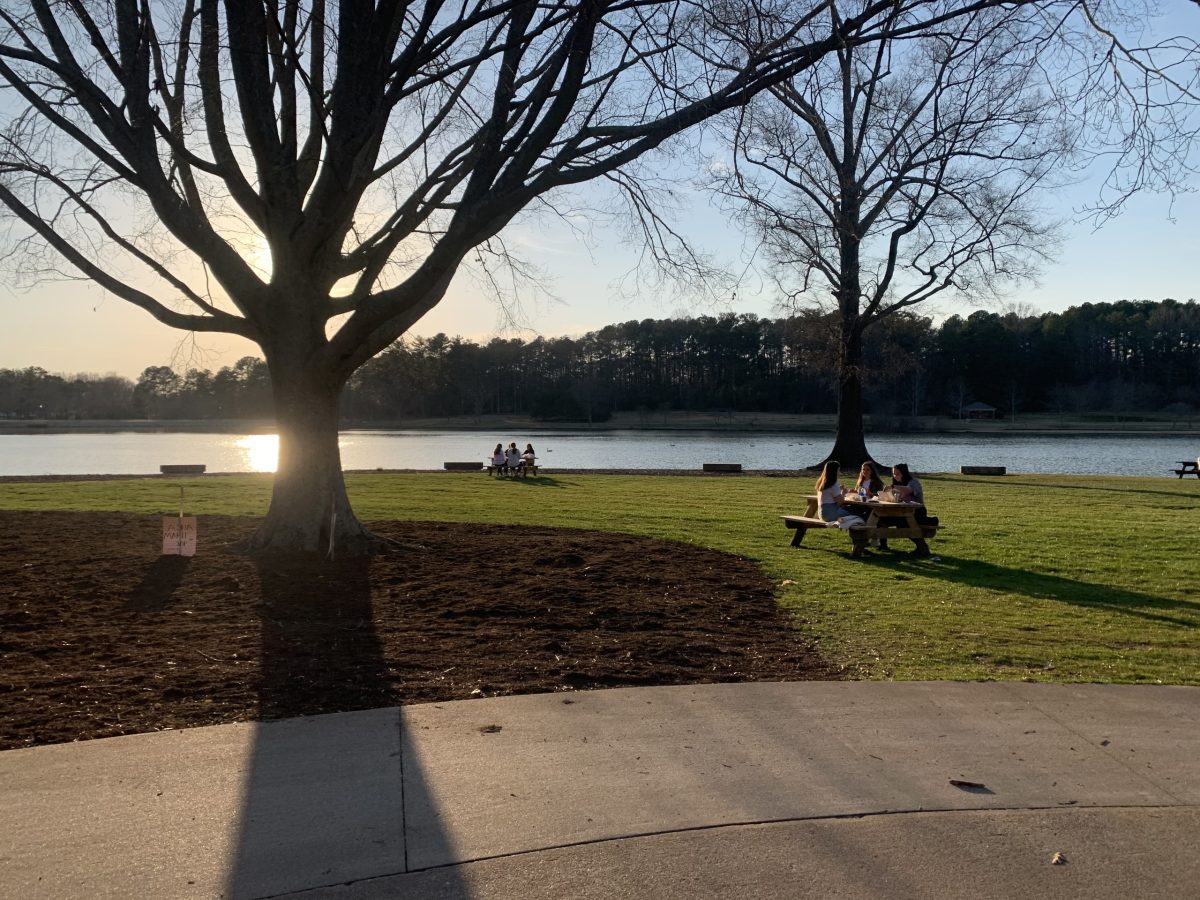This semester’s phased return to campus will see the majority of second- and third-year students learning remotely until mid-September. Among these are music students, who adapted quickly to online classes this past spring and will now continue to practice their instruments and learn music theory and stagecraft at home.
Traditionally, Furman’s music students are together in some capacity every day, whether it be in class, studying in the music library, watching each other in recital, or grabbing a meal before rehearsal – each class and ensemble resembles a family. On campus, the Daniel Music Building offers practice rooms in which students privately learn and perfect their pieces; additionally, the Maxwell Music Library provides students access to a large collection of music and literature about music. The absence of both of the social and practical aspects of life on campus will undoubtedly create challenges for music majors, but many are finding creative ways to grow their talent during this time.

One challenge of at-home musical instruction is locating a private space to practice. Without access to practice rooms, students must find areas at home in which they can cultivate their talent. For sophomore French horn player Jordan Hembree, this means finding a room with good acoustics and adequate space “over in the back corner of one of [her] rooms, [and to] have a chair and a stand set up by a window. The room does not have very much reverb, so it allows [her] to hear the sections of music [she] need[s] to work on most.”
Junior vocalist Addison Ballew describes her practice area, a screened-in porch with all the windows closed, as “my own nook.” Without a pianist to accompany her, Ballew sings with recordings from YouTube and the Accompanist app.
The size and mobility of one’s instrument can also pose a challenge in practicing from home. Sophomore violinist Ashlyn Athey calls her instrument “one of the most at-home friendly,” stating that it requires little set-up, unlike many percussion instruments. Without the advantage of the music building’s organ room, sophomore organist John Bayne must go to a nearby church to play, as the portions of organ pieces he can practice on his piano are “very limited”.
Many of these students find that the biggest challenge of online learning is the diminished sound quality and connection issues that may occur in Zoom classes and lessons. “Music majors rely so heavily on ear training,” Hembree stated, recalling that hearing background noise in Zoom when her professors played the piano was a problem for her last semester. Others stated that being isolated is difficult when studying music. “I think the most challenging thing about taking music classes from home will be that it would be hard to get to know some more music students,” one student said. Practicing voice poses different challenges, states Ballew, because pieces that require “more stylistic choices” must be undertaken without the help of a coach. Others cited friendship and encouragement from other musicians as very important to their growth.
Despite these challenges, music students have found positives to remote learning. Many stated that being at home creates fewer distractions than working and practicing in a building full of people. Ballew states that being at home allows her to practice and progress at her own pace. Another student stated that they enjoyed being able to study music in their hometown. Music has also been very important in helping these students through this difficult time. Both Ballew and Athey stated that music helps them stay connected. Athey counts herself lucky that she can watch performances online, and thinks that social media is a great tool for musicians. Hembree has been able to keep performing in her church orchestra. Bayne regards music as “healing,” and another student called it “a gift.” These musicians are not alone in the hope that we will soon be able to come together to share this gift with each other and the world around us.









































